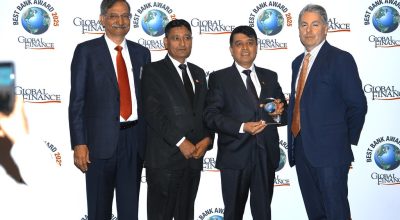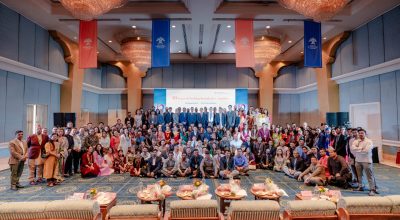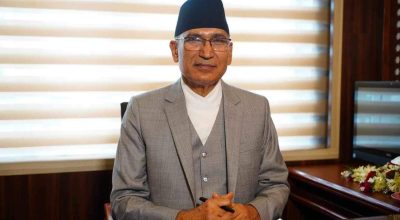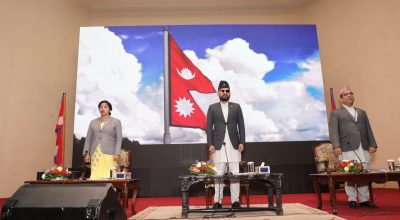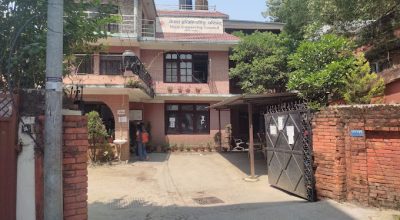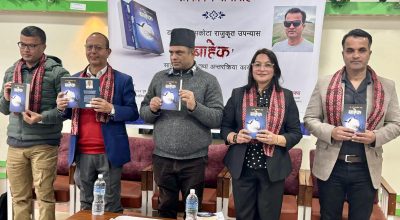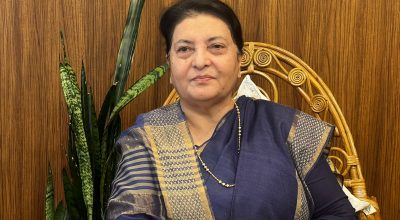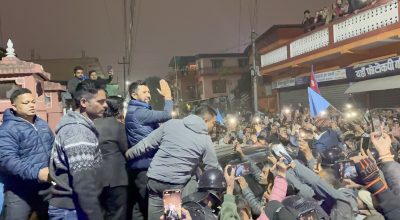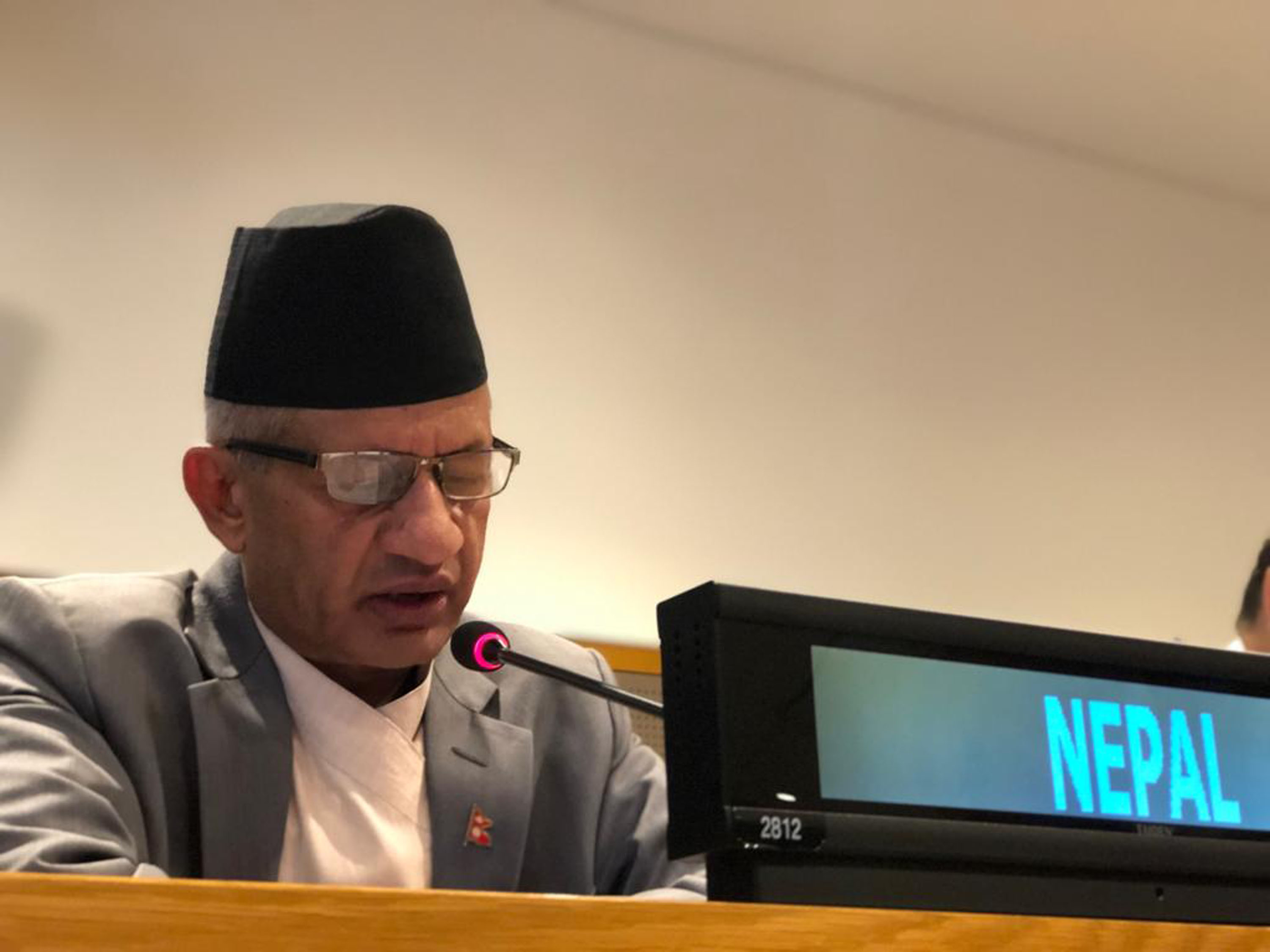
Kathmandu, Sept 28 : Minister for Foreign Affairs, Pradeep Kumar Gyawali, has said the peril of climate change is outpacing human response.
The threat is truly existential in terms of sustainability of planet and future of humanity, he added.
According to Ministry of Foreign Affairs, delivering a statement at the 74thSession of the United Nations General Assembly in New York on Friday, Foreign Minister Gyawali said it is the poorest and most vulnerable countries that are hit hardest by the impacts of climate change.
Despite their negligible emissions, they face the consequences which are disproportionate, unjust and undue. “In this context, Nepal appreciates the Secretary-General’s leadership in convening the Climate Action Summit on 23 September 2019. It was another milestone to chart out sustainable path in the face of obstinate ignorance of climate science”, he mentioned.
He shared before the global community that home to Sagarmatha, also known as the Mount Everest, the highest peak in the world, Nepal lies at the hotspot of climate change.
The Himalayas, as the barometer of climate change, are witnessing the melting of glaciers and drying up of the fresh water in a faster pace, he informed.
Minister Gyawali brought the reference of a report by the International Center for Integrated Mountain Development (ICIMOD) which reveals that one-third of the glaciers will melt away from the Hindu Kush and Himalaya range by the end of this century even if we meet the 1.5 degrees commitment.
“This is alarming,” he said, adding, “The climate induced disasters wreak havoc every year. This year alone, several Nepali people lost their lives to floods and tornado.”
According to him, Nepal decided to convene a global dialogue in April next year under the theme of climate change keeping in mind the seriousness of the issue and realization of our own responsibility.
This will be the first episode of the Sagarmatha Dialogue established by Nepal to deliberate on critical issues of contemporary importance, he shared.
Centrality of the UN to address global challenges “Nepal pins a great hope on the centrality of the United Nations for galvanizing multilateral efforts to address the cross-cutting and global challenges, such as; poverty reduction and achieving SDGs.
Nepal is abiding trust on multilateralism and believe that only alternative to it is a better, effective, inclusive, and responsive multilateralism,” he mentioned.
Moreover, he viewed the adoption of the Agenda 2030 was a display of inclusive multilateralism at its best. The Agenda can be implemented if similar spirit guides our actions with renewed sense of partnership and with all stakeholders shouldering the responsibility.
In the last four years, the SDGs scorecard shows mixed progress. Poverty has decreased but the rate of reduction is decelerating. The unemployment rate has dropped but the wages remain stagnated. Food insecurity and hunger are in a regressive track.
The Foreign Minister suggested enhanced level of collaboration to mobilize required resources for the attainment of the SDGs as well as Universal Health Coverage.
He mentioned, “In the countries like Nepal, there is a big gap of resources in order to fully realize the SDGs by 2030. Mobilizing domestic financial resources is our priority.
However, national efforts need to be complemented by international support measures in the form of technical, financial, investment and other means of support, particularly to the LDCs and LLDCs.”
Inequality is growing
The world has made great strides in wealth creation and advancement of technology. So has been the progress in life expectancy, literacy, basic education and reducing maternal and infant mortality, he said, adding that the progress however has not been evenly distributed.
Women and girls, people with disabilities, ageing population still bear the disproportionate brunt of poverty and inequalities. Inequality within and between countries is growing.
In this context, the Minister argued, Beijing+25, International Conference on Population and Development+25 and mid-term review of Vienna Program of Action would provide important opportunities to reset the actions in accelerated pace.
Nepal appreciates the Secretary-General’s strategy on bringing gender parity, he lauded. Moreover, he shared before the global community that Nepal welcomes the reforms towards creating synergy and coherence of the UN system adhering to the principle of keeping people at the centre.
“We are hopeful that the new generation of country teams and RCs live up to the expectation by delivering more. We hope that the renewed thrust of UN reforms will also propel the reforms of the Security Council.”
Efforts must be to make Security Council representative
He underscored the need of making the Security Council representative in structure, transparent in function, democratic in character and accountable in performance.
The agenda of revitalizing the work of the General Assembly, including its enhanced role and authority is long overdue, he made aware.
The Foreign Minister cautioned that heightened geopolitical complexities, defunct disarmament architecture, and absence of order in cyber and outer space endangering international peace and stability.
Arms race coupled with growing distrust among major players appears symptomatic to a new form of division with regard to critical issues of peace and security.
In order to manage the aforementioned issues, stronger and effective United Nations is required which then builds promote trust and cooperation, according to him.
He also informed that Nepal supports general and complete disarmament of all weapons of mass destruction.
“We are concerned with the collapse of INF treaty, pull out of an important party from the Iran Nuclear deal, and stalemate in the Conference on Disarmament. Such trends should not encourage the penchant for nuclear armaments.
Nepal is in support of effective and verifiable nuclear weapons free zones, the Minister committed.





